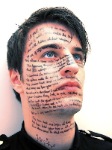Search
Rychard Carrington reports on Jim Moray – The Junction, Cambridge 14 March 2009

The enfant terrible of folk, Jim Moray had dyed-in-the-wool, finger-in the-ear traditionalists choking on their real ale with his genre-bending music. Moray brings folk music kicking in its sandals and screaming through its beard into the twenty-first century. He has the winner of this award and was nominated for that award; such-and-such magazine described him as the most radical thing in folk since Rambling Syd Rumpo ...
Such PR-style journalism can get tiresome, can't it? I've read quite a lot of descriptions of Jim Moray rather like the above, so it was refreshing to cut through all that and actually listen to the man himself. And I must say that I was impressed.
Far from being an enfant terrible, Moray was a thoroughly pleasant, engaging young man, confident but modest; not at all terrible, and only childlike (he's twenty-seven) if energy, enthusiasm and sincerity qualify as being childlike. And of course he wasn't barracked by ridiculous caricatures at all. (It irks me how journalists perpetuate myths about the folk scene being full of disapproving traditionalists. I reckon I frequent the folk scene more than most of said journalists, and I haven't met one in ages.) In fact one of the most impressive aspects of Moray is his traditionalism, in the sense of his deep and lively enthusiasm for traditional music; i.e. he's a folkie who actually plays mostly real McCoy traditional music. He performs it with a wide variety of arrangements, with an appreciation of the richness of all manner of styles; the radicalism isn't self-conscious, the experimentation never gratuitous. When Lucy Wan featured a sample of a collaboration with a rapper, it was neither a high point nor a low point of the concert, but just another example of Moray bringing out the richness of traditional music with imagination and talent.
Moray was most ably supported by drummer William Bowerman and multi-instrumentalists James Delarre and Nick Cooke. Initially the quartet attained the strident, atmospheric power of the best of Seth Lakeman. It was particularly good to hear Moray's electric guitar backed with some powerful rock drumming, without the usual accompaniment of bass guitar. Instead, combinations of hurdy gurdy, melodeon, fiddle and glockenspiel. Splendid.
Just as I was thinking that I might get a little bored if they stuck to this sound throughout, Bowman exited from the stage and Moray went acoustic. Subsequently instrumental permutations abounded. Not only did Moray, Delarre and Cooke each play a variety of instruments, but the number of musicians on stage varied throughout, from four to one: Moray opened the second half alone and a cappella; he even went off stage himself at one point, leaving Delarre and Cooke to perform a couple of good tunes together. Some of the best numbers were delivered by Moray solo, with his own acoustic guitar accompaniment. While two of the best of the numbers in the traditional vein - Three Black Feathers and All You Pretty Girls - were actually written by contemporaries Bella Hardy and Andy Partridge respectively, Moray's own composition was surprising and delightful: a quietly powerful balled entitled Adam Ant Alone In His Padded Cell, which treated the unusual subject with more maturity and sensitivity than one might expect for it.
In short, never mind the publicity, this was just very good folk music. In even shorter, this was just very good music.
Writer: Rychard Carrington